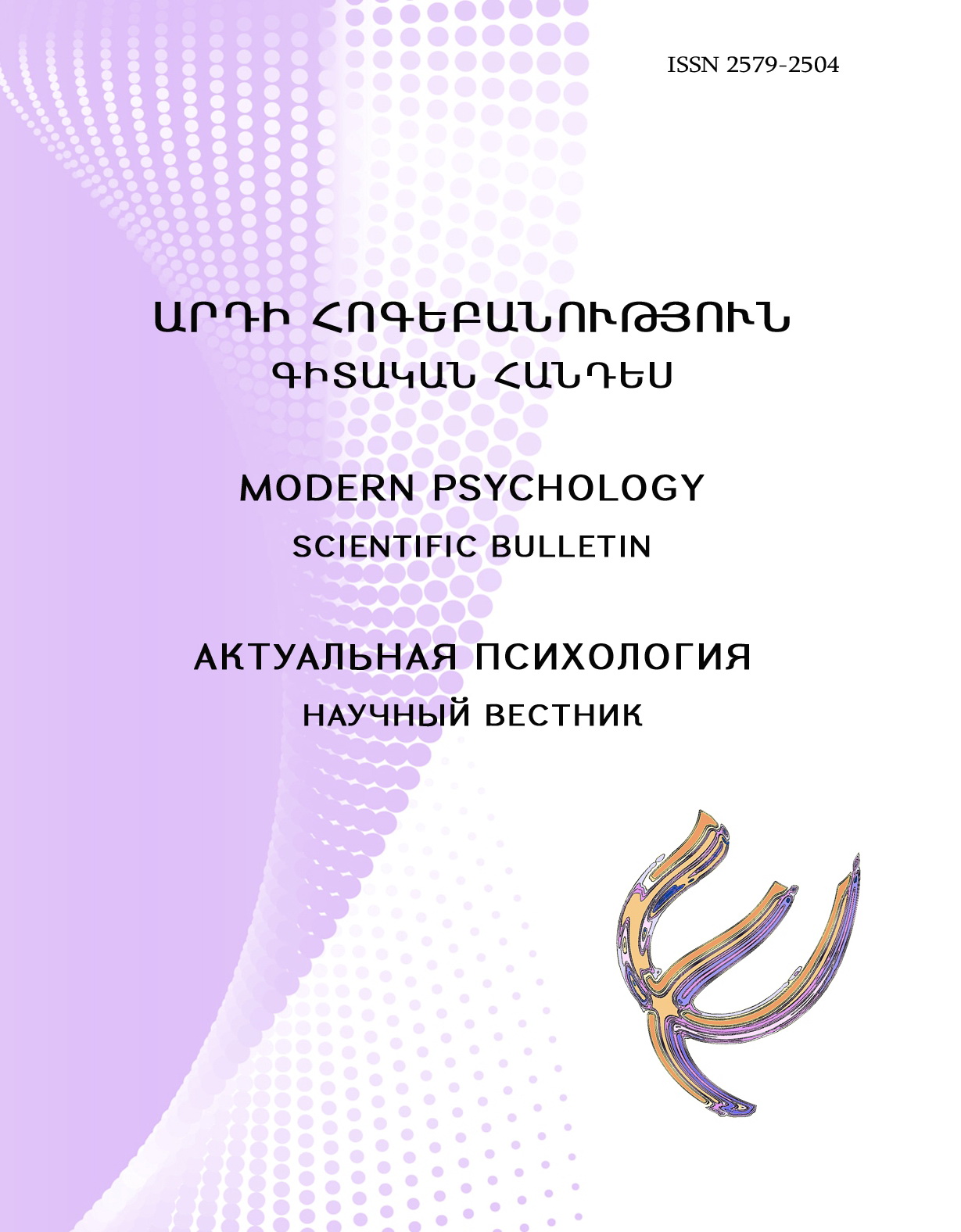THE PROBLEM OF CHILDHOOD IN THE CONTEXT OF MODERN CHALLENGES IN THE EDUCATION SYSTEM
DOI:
https://doi.org/10.46991/SBMP/2023.6.2.056Keywords:
Childhood, age, psychopedagogical features, education system, methodology, cognitive qualities, social behaviorAbstract
The article presents certain small parts of the results of our research and the approaches of various specialists on the following issues: what changes by age stages have occurred in the cognitive sphere of the child, in particular, in thinking, social behavior, emotional-volitional sphere, what positive and negative consequences they can have lead in the process of socialization of the individual, is there a need and in what directions to transform the education system, the methodology of the learning process in order to adapt them to the development and age-related changes of the modern personality, manage these developments, ensure successful and active socialization of the individual? In particular, the changes occurring at primary school age in the cognitive, emotional-volitional spheres, and social behavior of the child were presented (аlthough the study also covers preschool and adolescence). The research was conducted through observation, interviews, questionnaires and tests. Children of preschool and school age, teachers, and specialist teachers took part in the research. In the article, we also talked about Internet addiction of primary schoolchildren and its negative consequences from the point of view of their socialization.
Our research proves that children of the 21st century have surpassed their peers of previous generations in overall rates of development, the number of new psychological characteristics, the characteristics of their manifestations and general abilities. However, we do not consider it advisable to evaluate these changes only from a positive point of view, since there are a number of psychological and pedagogical problems that we discussed in detail in the article.
References
Князев Н.Н., (2020), Феномен современного детства и понимание его границ // Наука о человеке: гуманитарны е исследования Т.14, № 2/2020. стр. 63-66. DOI: 10.17238/issn1998-5320.2020.14.2.10
Мудрик А.В. (2009).Введение в социальную педагогику. Изд. 2-е, перераб. – М.: Московский психолого-социальный институт, – С. 78.
Палецкая Т.В., Рюмина Т.В., Ребенок 21 века: проблемы, перспективы развития // Интерактивное образование, выпуск №52, апрель 2014. http://io.nios.ru/articles2/1/9/rebenok-21-veka-problemy-perspektivy-razvitiya
Топузян А.О. и др., (2018), Информационные технологии в начальной школе. Учебное пособие для учителей и родителей. -Е., изд. Манкаварж, стр. 55-59.
Фельдштейн Д.И., (2009). Современное Детство: проблемы и пути их решения // Вестник практической психологии образования №2(19) апрель—июнь. Стр. 28-32.
«McCrindle» авторский центр исследований https://mccrindle.com.au/article/topic/demographics/the-generations-defined/։ Просмотрено 20․09․2023։
Downloads
Published
How to Cite
Issue
Section
License
Copyright (c) 2023 Srbuhi Gevorgyan

This work is licensed under a Creative Commons Attribution-NonCommercial 4.0 International License.



